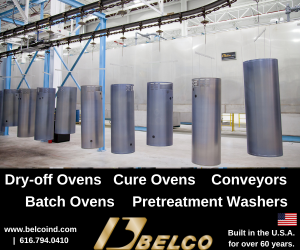Change in Aqueous Cleaning Process
Question: Our use of a non-etch, alkaline soap cleaner has been an old and reliable standby for in-house cleaning of parts that we then send to an outside vendor for additional cleaning and chromating (chem film). Our vendor has decided to change from an alkaline cleaner to an acidic cleaner and this has raised some questions.
Question:
Our use of a non-etch, alkaline soap cleaner has been an old and reliable standby for in-house cleaning of parts that we then send to an outside vendor for additional cleaning and chromating (chem film). Our vendor has decided to change from an alkaline cleaner to an acidic cleaner and this has raised some questions. He is now using a proprietary aqueous mixture of 5–10% phosphoric acid and 1–5% alcohol (2-butoxyethanol or butylcellosolve) to degrease aluminum parts prior to chromating. I know butylcellosolve is popular in some household cleaners but I am not sure if it would sufficiently degrease water soluble and possibly light machine oils on most of our aluminum alloys (series 2000, 5000, 6000 & 7000). Do you have any thoughts about this type of phosphoric acid and alcohol degreasing solution? I'm not sure of the vendors dilution, dwell time, temperature or control tests. T.A.
Answer:
Butylcellosolve is called "EB" and is usually added to aqueous cleaners that are designed to remove buffing compounds and is used in a neutral solution. It can also be used to "clean in place" (like 409). It is not needed to remove the kind of soils you are describing, although it won't hurt to use it either. The phosphoric acid merely determines the pH of the bath. If only these two chemicals are being used, along with water, they are probably not cleaning anything. In order to clean there must be surfactants and other additives to break the electrical bond between the soils and the substrate. If this is a commercially available cleaner that is produced professionally, I would assume it has all the required ingredients. If it is a "homemade" cleaner that your vendor mixes in-house, it may or may not contain all of the essential ingredients.
A well-maintained aqueous alkaline cleaner will do a fine job in removing the soils you have. I wonder if the vendor changed solutions to accommodate some other situation? In short, the new bath won't hurt anything, but if it is without the required additives it's probably not doing much cleaning. I would encourage the vendor to go back to a good alkaline cleaner for your parts. Obviously, it should be kept up to strength, temperature and pH by regular analysis.
Related Content
-
Products Finishing Reveals 2024 Qualifying Top Shops
PF reveals the qualifying shops in its annual Top Shops Benchmarking Survey — a program designed to offer shops insights into their overall performance in the industry.
-
NADCAP Shop Digitizes to Eliminate Paper Trail
Customizable ERP software has transformed a 27-year-old manual metal finishing job shop into a state-of-the-art paperless company with full digital traceability in about 10 months.
-
Finishing Systems Provider Celebrates 150 Years, Looks to Future
From humble beginnings as an Indiana-based tin shop, Koch Finishing Systems has evolved into one of the most trusted finishing equipment providers in the industry.








.jpg;maxWidth=300;quality=90)



